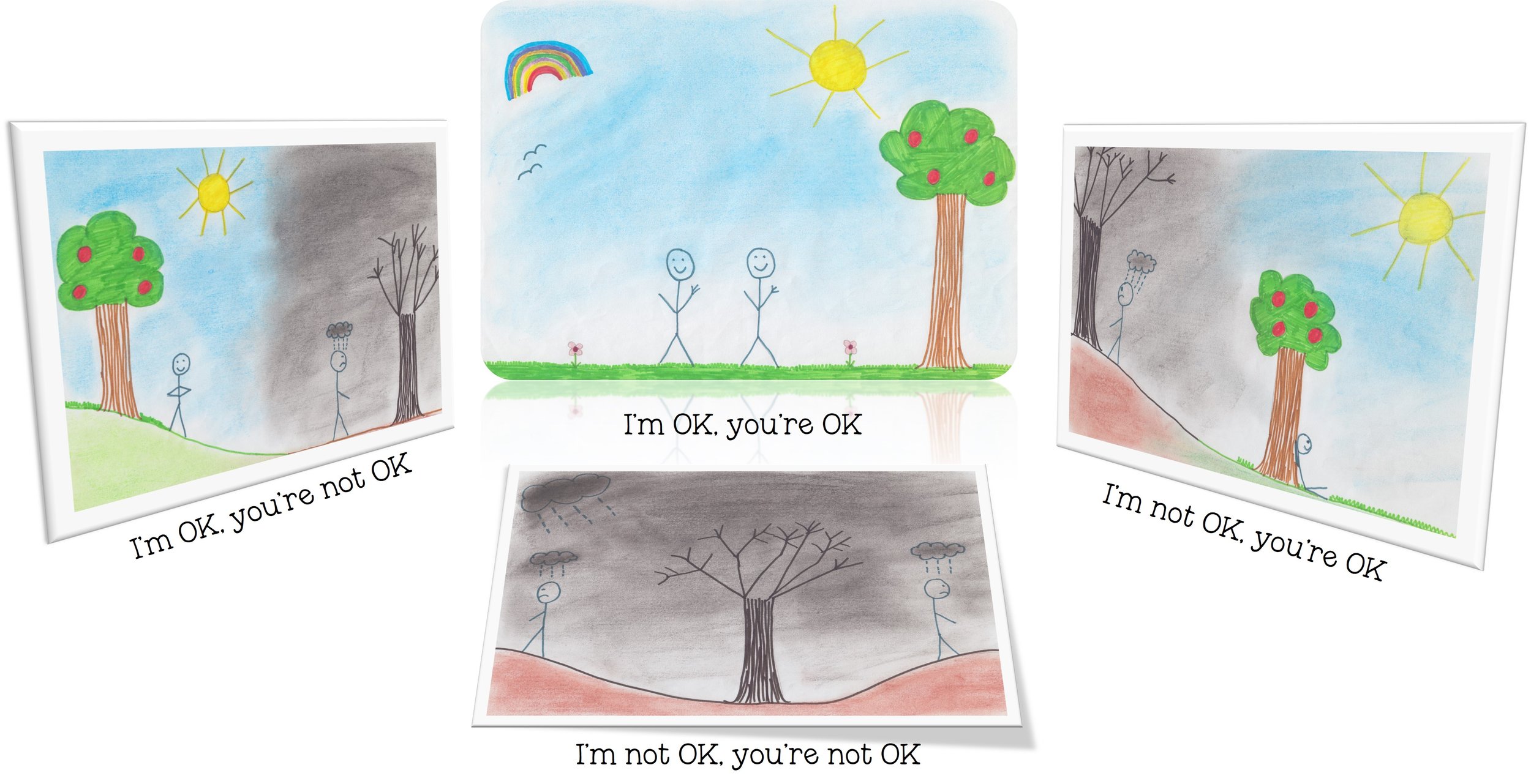
We can use this framework to improve our relationships*
*I’m using the word 'relationships' to describe any interaction between two or more people - from colleagues, through friendships, family relationships and romantic relationships.
‘I’m OK, you’re OK’ is the position where our relationships are at their healthiest. In these relationships, the people involved are supported and able to grow, existing alongside one another, being both independent and interdependent. However, when we feel ‘not OK’, we might find this showing up as difficulty in our interactions with others and our relationships.
There are numerous factors which can cause us to move between feeling ‘OK’ and ‘not OK’. They’re often complex and interconnected, so it can be difficult to tease them apart. With all the levels of complexity involved in relating to others, the framework can enable us to step back and look at our interactions from a vantage point, rather than being immersed in the dynamics between us.
Some factors affecting our relationships and their health:
-
Our early experiences with other people created our expectations of what relationships will be like. For example, if we've experienced other people as being available and showing us love, we will have felt 'OK' in these early relationships. When our experience is of feeling 'OK' with other people, it's likely that we'll grow expecting our interactions with others to result in us both feeling 'OK' - 'I'm OK, you're OK'.
-
Our ability to solve problems and take action in the world in order to shape our lives – our power – can have a huge impact on our relationships. This is because our power, and our perception of our power, affects us in many areas, such as our self esteem, confidence, mental health and resilience. These factors influence the relationships we engage in and the way we engage in them, for example, staying in a relationship that no longer suits us because we fear we can’t manage alone.
-
Our status within groups can affect whether we feel ‘OK’, or ‘not OK’. For example, if we’re neurologically atypical, don’t have physical attributes prized by our society, or belong to a minority ethnic group, we might feel like we don’t fit in. This can cause us to feel ‘not OK’ about ourselves. However, rather than owning the difficult feeling of being ‘not OK’, we might unknowingly project our discomfort onto another person, for example finding fault with some aspect of them, or imagining that they’re thinking badly about us.
-
Projection plays a big part in our relationships. Without awareness, we'll find people who display certain attributes which fit the characters in our stories and assign these roles to those people. It’s also a way of disowning aspects of ourselves which we don't like, by attributing them to someone else. Often when we feel a strong dislike for someone, it's because we’re projecting an aspect of ourselves onto them.
-
We notice things that match our expectations and experiences of how the world works, filtering what we take-in to fit our stories and beliefs. Consequently, if our predominant early experience was of feeling 'I'm not OK, you're OK', it’s likely that we'll have interactions and relationships with people which result in this perspective being reinforced.
-
We can move position because of the perspective of the person or people we’re interacting with; if someone is behaving in a way which makes us feel uncomfortable, or unsafe for some reason, it's likely that they will be existing in a 'not OK' position. When this happens, we can easily take up the corresponding 'not OK' position.
Understanding ourselves is key to better relationships
The more self-awareness we have, the better our relationships can be. If you’d like to attend a workshop about how to improve your relationships, get in touch. You can also read more about the framework and how it applies to your life in my book. Subscribe to my newsletter so I can let you know when it’s ready!
Find ways to do things differently






